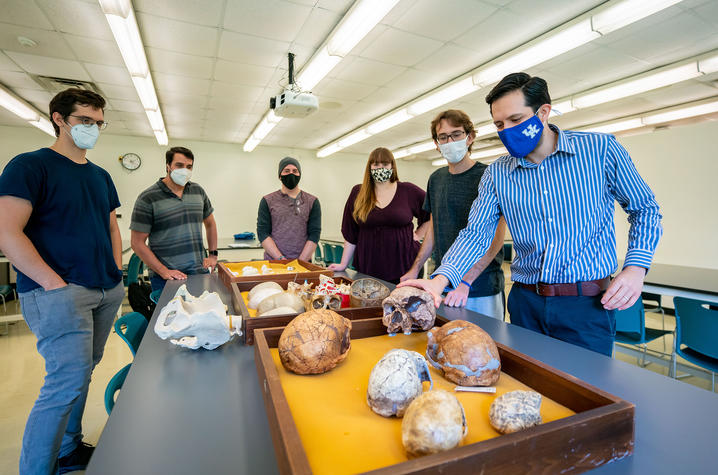 LEXINGTON, Ky. — It’s the signature on a bourbon barrel — it’s the ancient footprints in Mammoth Cave. UK awarded $14 million NSF infrastructure grant
LEXINGTON, Ky. — It’s the signature on a bourbon barrel — it’s the ancient footprints in Mammoth Cave. UK awarded $14 million NSF infrastructure grant
Heritage science is all around us and has deep roots in the Commonwealth. Kentucky’s story begins in prehistoric times when mammoths roamed the Ohio River Valley at Big Bone Lick.
Now, thanks to a $14 million infrastructure grant from the National Science Foundation, the University of Kentucky is poised to tell that story in new, groundbreaking ways through the lens of heritage science.
“We are at a turning point,” Brent Seales, UK Alumni Professor in the Department of Computer Science, said. “Science and technology present a host of exciting opportunities to the heritage sector. They must not be wasted.”
For more than 20 years, Seales has been working to create and use high-tech, non-invasive tools to rescue hidden texts and restore them to humanity. Dubbed “the man who can read the unreadable,” he has garnered international recognition for his “virtual unwrapping” work to read damaged ancient artifacts — such as the Dead Sea Scrolls and Herculaneum papyrus rolls — without ever physically opening them.
Now, Seales is expanding his research.
Using the NSF infrastructure funding, he has gathered a team of experts from the College of Engineering and the College of Arts and Sciences to build EduceLab — UK’s vision for next-generation heritage science. The collaborative facility will focus on developing innovative artificial intelligence (AI) solutions for the unique challenges presented by cultural heritage objects.
Heritage science draws on engineering, the humanities and the sciences to enhance the understanding of our past, inform the present and guide our future. Ultimately, the goal is to enrich people’s lives and celebrate both the commonality and diversity of the human experience.
“The word Educe means ‘to bring out from data’ or ‘to develop something that is latent but not on its own explicit.’ That’s what we’ve been doing with our virtual unwrapping work. And that context has created an opportunity to expand the very focused question of, ‘Can we read what’s inside a scroll?’ to a broader question of, ‘What heritage science questions can we answer right here in Kentucky,’ Seales explained. “My goal is to rally some of the best researchers here around that theme and build a world-class laboratory that allows us to pose and then answer some of those questions.”
And the quest for answers has already begun.
“Here at UK, we are tremendously well positioned to bring in collaborations, because we have all major colleges in one contiguous campus,” Hugo Reyes-Centeno, an assistant professor in the Department of Anthropology, added. “I see tremendous potential to integrate quantitative analysis and new methodologies that will inform the theoretical perspectives that are the hallmark of the social sciences.”
More information about EduceLab can also be found online.
Click here for more Kentucky business news.



















